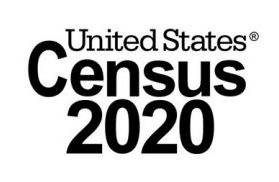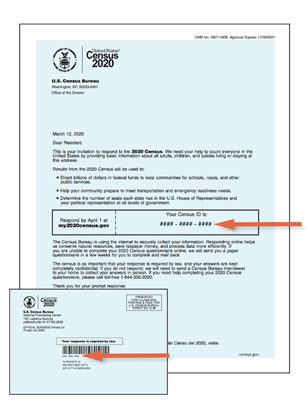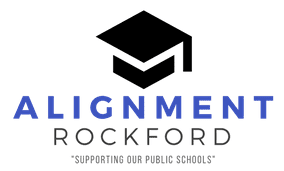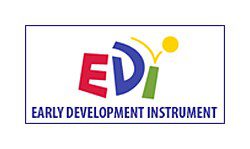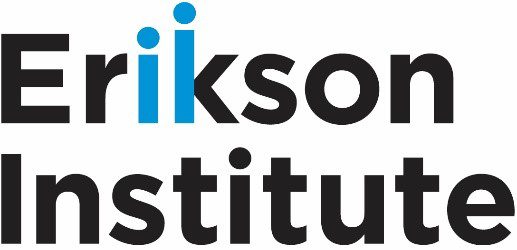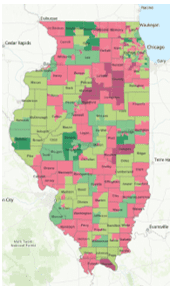“Systems change is about shifting the conditions that are holding a problem in place.”
—Ecosystems for Systems Change
Community Systems Statewide Supports (CS3)
The CS3 team recently updated the Program Inventory Reference Guide. In its third iteration, the Program Inventory Reference Guide is a cross-systems resource for early childhood stakeholders and communities in Illinois. The purpose of the Guide is to equip early childhood community collaborations with accurate, up-to-date information on all state early childhood systems and programs relevant to the birth-to-five population. For simple videos describing some of the early childhood programs listed in the guide, don’t forget about Pieces of the Puzzle resources!
Interested in honing your collaboration’s family engagement skills? Our On-Demand Consultation can help! On-Demand Consultation offers up to six hours of one-on-one help with a community systems leader on a range of topics. Learn more and submit a request for supports here.
Census 2020
Help us get a fair and accurate picture of our community
Keep an eye out for your 2020 Census mailer and make sure it doesn’t accidentally get thrown in the trash! Children under the age of 5 are often missed in the Census count. In the 2010 Census, 36,000 children went uncounted resulting in a loss of $340 million for support of hospitals, child care, schools, and more. The more children that are counted, the more financial support important programs such as the CCAP (Child Care Assistance Program), Head Start, and WIC (special supplemental nutrition program for women, infants, and children) will receive.
As soon as it arrives you can complete the Census online. If you don’t receive a postcard you can still complete the Census online or by telephone at 844-330-2020. The sample below shows where to find your residence code.
Collaboration Highlight
Alignment Rockford–Ready to Learn Sparks a Movement for Kindergarten Readiness with their Early Development Instrument (EDI) Initiative
“There’s a buzz in the air. Everyone is waiting to see what comes next, and how they can help,” said Anisha Grimmett, Executive Director of Alignment Rockford and lead staff for the Alignment Rockford–Ready to Learn collaboration. She is describing the energy and excitement in Rockford this fall after finishing the first phase of the Early Development Instrument (EDI).
The seed for this initiative was planted a couple years ago when the Rockford community learned that many third graders were not reading proficiently. Concerned by the implications of this reality for children and families, community members and organizations were determined to address this problem. The local community-based organizations Alignment Rockford and Transform Rockford, Rockford Public Schools (RPS), and community leaders set out to explore the issue. They soon learned that obstacles for children and families began way before third grade.
Identifying the issue proved to be a lot easier than pinpointing the root cause. The Rockford community was unsure how to proceed until they heard about the Erikson Early Development Instrument (EDI) pilot project at a birth-to-5 conference. They knew that the EDI pilot’s approach to collecting data and finding community-level understanding was just what they needed. Recognizing this need, Alignment Rockford, Transform Rockford, Rockford Public School (RPS), and The Erikson Institute partnered to launch the EDI pilot.
The Alignment Rockford-Ready to Learn collaboration was formed when the Rockford EDI leadership team recruited more than 40 stakeholders, including RPS District 205 and private and parochial schools to lead and support the pilot. The collaboration’s overarching goal is to prepare all Rockford Region children for kindergarten. During the first year of the pilot, the collaboration worked with the community to identify the targeted neighborhoods and train school staff on how to use the analysis tool. As a result, they completed more than 2,000 child assessments. After the first year of EDI assessments, trained ambassadors presented more than fifty data gallery walks to share their findings to the community and ask for their feedback on the data. They presented the data at community meetings, churches, community centers, meetings with elected officials and anywhere they could reach members of the community—always asking, “why do you think this is happening in your neighborhood?”
The data and community feedback revealed that children were thriving better in neighborhoods that had:
- Continuity in early childhood systems of care and education;
- Public spaces, such as community centers, where neighbors were able to create and support relationships;
- Early childhood stakeholders with the skills and knowledge to help children be ready to learn.
The community is now working to sustain the momentum, thanks in part to the Community Foundation of Northern Illinois, a local foundation which provided a three-year, $210,000 grant. Alignment Rockford – Ready to Learn is in the process of recruiting members for their three alignment teams: 1. Early Childhood Continuity, 2. Family Friendly Neighborhood, and 3. Coaching and Supporting. Each team is charged with developing and implementing a pilot initiative using the EDI community data to inform their issue areas and create conditions where children and families can thrive.
In addition, they have created a Community Connectors Team, to support and document how local stakeholders are using the EDI data in their own planning, services, interventions and work. Part of the Rockford EDI pilot action plan includes the development of relationships with elected officials to help them understand the importance of early childhood education. To further this work, the collaboration created a policy roundtable where policymakers will develop and advocate for a common plan for neighborhoods and use this to influence state legislation.
Two years into the EDI pilot, the Alignment Rockford – Ready to Learn team reports that their process with EDI unified and focused their efforts to prepare all Rockford children for kindergarten. Anisha shares, “When we started this initiative, certain pockets of our community understood the importance of early childhood but now there is a movement to ensure everyone understands. We have kept this in their faces, inviting them to join us, and they know we are not going anywhere…more people are talking about coming together to support children and families. They are waiting and looking forward to the next results, and that’s why we cannot fail.”
For those communities interested in participating in the EDI pilot, Alignment Rockford-Ready to Learn collaboration has the following advice:
- Just do it!
- Trust the process and the Erikson staff because they know what they are talking about.
- Always include the people with lived experiences, who are the most impacted.
For more information on the EDI, read this month’s highlighted resource below, or visit https://edi.erikson.edu/. If you are interested in applying to be part of the EDI pilot project, email edi@erikson.edu.
Resources
Learn more about the Early Development Instrument (EDI), what it is, and how to get it in your community.
Q: How would you describe the Early Development Instrument (EDI) in one sentence?
A: The Early Development Instrument (EDI) is a neighborhood-level population measure that captures the development of young children within the context of their community
Q: How can an early childhood collaboration benefit from adopting the Early Development Instrument?
A: Early childhood collaborations can use the EDI to identify strengths and gaps in early childhood programs and services, map local resources, and align and strengthen early childhood systems. Many collaborations utilize the EDI to support strategic planning, community-driven policy recommendations, grant proposals, and equitable distribution of resources. The EDI also complements existing student assessments, such as the Kindergarten Individual Development Survey (KIDS), that allows collaborations to assess the community impact of child development over time.
Q: What kind of support do community collaborations receive during this process?
A: Community collaborations will receive training, coaching, and technical assistance to implement the EDI. The staff at Erikson are committed to supporting community collaborations throughout the entire implementation process, which includes advocacy coaching and support, data collection and analysis, capacity building around data and policy literacy, and community action plan development and refinement based on the EDI results. Our team also works with community collaborations to ensure stakeholders across various sectors are engaged throughout the process, which often leads to greater systems alignment and coordination of programs and services.
Q: What makes a community “ready” for the EDI?
A: A community is ready for the EDI when they have a collaboration or group of individuals committed to striving for larger systemic and structural change to support young children and their families. There must be an additional commitment from the school district(s) in the area. Their kindergarten educators will need time and resources to complete the EDI.
Q: What should interested communities do to learn more about EDI?
A: To learn more about the EDI, interested communities should visit our website at edi.erikson.edu. If you’re interested in discussing adopting the EDI for your community, contact us at edi@erikson.edu.
Access and Quality for Illinois Children
IFF’s statewide needs assessment, Access and Quality for Illinois Children, examines access to quality early childhood education services in Illinois. The report informs stakeholders of the disparities in access across communities.
Early childhood collaborations can use the information to understand visually through maps where the greatest disparities are and then work to increase both access and quality in their communities. To view the maps and more information click here.
Upcoming Trainings and Events
Unfortunately, the training “No Decisions About Us Without Us: How Service Providers Can Empower Families through Authentic Engagement” originally scheduled for April 24, 2020 has been cancelled.
Partner Plan Act Annual Conference

The theme of this year’s conference is Equity from the Start: Shifting from Intentions to Outcomes. We want to continue the conversation around racial equity and ensure that it is explicitly embedded in all the work we do.
To help us with that discussion, author Ijeoma Oluo joins us as the conference keynote, best known for her New York Times best-seller, So You Want to Talk About Race. We will also have Chicago United for Equity moderate the closing plenary panel.
This two-day event is FREE, so register today!*
Help us get the word out! Please forward this message to a friend or colleague.
* We are closely monitoring the status of COVID-19 and may provide a virtual alternative to this conference. By registering, we will keep you up-to-date with all the latest information.

